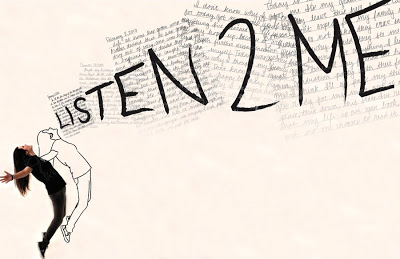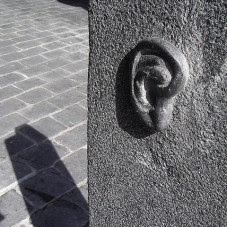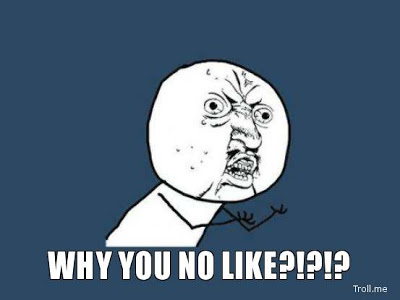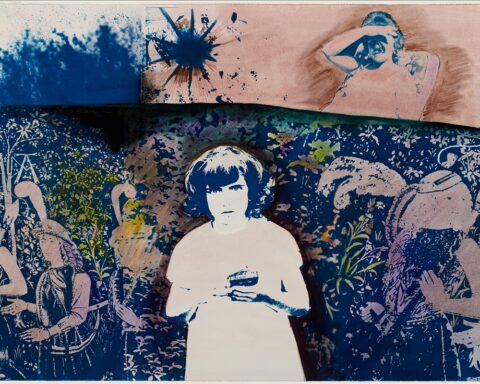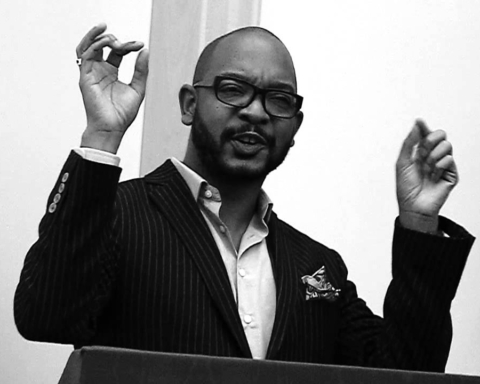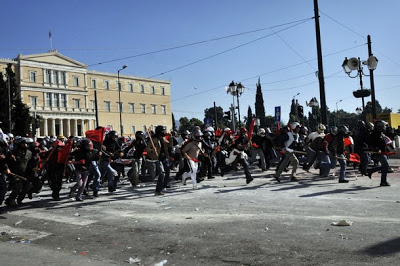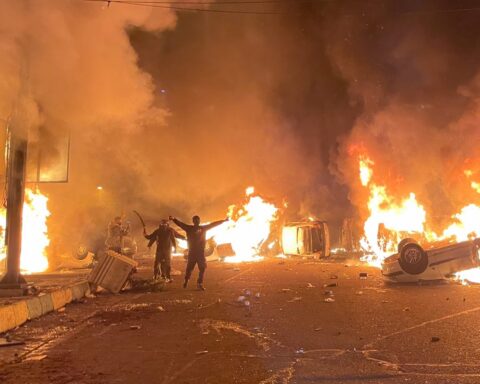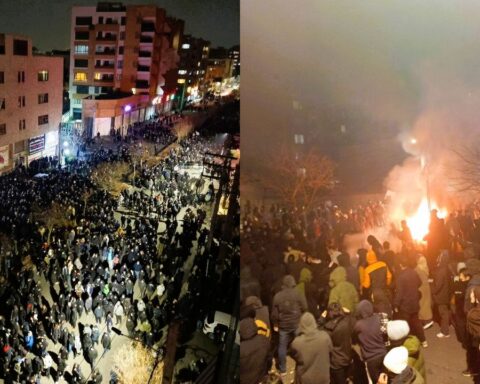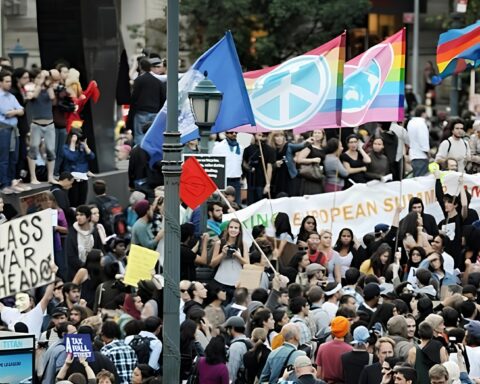I do not write, publish, speak or discuss in order to propagate a fixed set of ideas for others to embrace; I’m not interested in disciples or followers. I do so to communicate and discuss my own fluid and evolving ideas, my desires, my dreams, my experiences and my projects as clearly as possible in order to discover affinities, to find accomplices with whom to share my activities. I am convinced that the only real wealth worth pursuing is found in other people with whom one can share the creation of a life together aimed at the realization of the needs and desires of each and every one. Therefore, I gladly throw my words out into the world as a wager that they will strike a resonant chord with others with whom I can share projects of revolt against the ruling order and of taking back our lives and activities as our own. Unfortunately, often these words, chosen with so much care, seem to meet misunderstandings of the strangest sorts.
My desires, my dreams and, thus, my projects are informed by a revolutionary perspective, that is, by the recognition that it is necessary to make a fundamental, destructive break with the existing world in order to open the possibility for a world in which we can truly create our lives together on our own terms. The existing world, dominated by the state, capital and their technological and ideological machinery of control, defines wealth in terms of the things that one owns. In such a world, human beings themselves become things that are owned by the apparatus, the ruling institutions. Their value is not in the unique beauty of their being, but in their capacity to produce more things either physically in the form of products or socially in the form of roles and predetermined relationships. Thus, what is unique in each of us is suppressed in the interest of production. Wealth in this sense is purely quantitative, the ownership of a large amount of shit, possession of a greater share of the impoverished reality that this world imposes. All this must be destroyed if we are to create a world in which we recognize the qualitative wealth of the uniqueness that each one of us has to offer the other. And this is the project I try to express.
Unfortunately, it is very difficult to express such a project. Finding the balance between the simplicity that makes one’s language accessible and the complexity that is necessary to express how this revolutionary desire confronts the catastrophic reality of the world in which we live is not easy. It requires a certain precision and delicacy. By delicacy, I do not at all mean gentleness. Rather, I mean the use of great care in choosing the words that can best express one’s meaning while avoiding the pitfalls set by the increasing degradation of language in anarchist circles that has been caused by ideological thinking. But even this is not always enough. Real communication is never one-way, and the degradation of language (and ideas) doesn’t just affect how people say things, but also how they hear things. Those who make their language the servant of ideological ways of thinking will not so much listen to what someone says as filter it into the appropriate places within the frameworks of their systems for viewing the world.
The desire for simplicity itself can be a danger here. Things certainly seem simpler when we feel we have found the answers, so that we no longer need to call our ideas, our activities, our lives and ourselves into question. In a world of every day misery and catastrophe, the codified categories of ideology can be particularly reassuring. But this sort of reassurance comes at the expense of real communication and real discussion. Exchanges of words are reduced to mutual reassurances, evangelistic outreach and condemnations of those who don’t agree. The capacity to listen disappears, taking with it any possibility for real debate. Let’s look at a few examples of how this can work.
Activism, as a specialized role, carries its own vague ideology: things are bad, we need to do something to change them, we need to organize people for this purpose. Quite vague, indeed. But it doesn’t prevent activists from being fervent believers and hard-core evangelists. For the activist, as for any evangelist, the individuals they encounter are not unique human beings with whom to create relationships or share life, they are ciphers to convert into tools for the cause. Activists have sacrificed their own uniqueness and humanity to whatever cause, so why would they expect less of others? Thus, when activists speak of communicating with others, they mean that they are out to organize those others to fight for their cause. The activist transforms talking with your neighbors about the realities you face together into community organizing to build a movement.
Unfortunately, this activist ideology can seep into the way of thinking of individuals who are critical of activism and leftism, leading even these people to hear meanings in words that aren’t there. Thus, recently when I spoke of the need to talk with those around us about what we are facing in the world today and what we desire, one person asked if I was talking about “movement building”, a term with which I wasn’t familiar, but that sounds like something that would contradict my entire project as I’ve live and expressed it. (This individual was at least just asking and not immediately labeling and accusing, but her question left me flabbergasted.) Another, when I was not present, said that it sounded like the same old leftist shit (or something to that effect) and then later referred to me in writing as a “reformist community organizer”. I never knew that the idea of talking with one’s neighbors could carry so much baggage. Then again I’ve never been an activist or an organizer, and have carefully kept my distance from that sort of thinking. I always thought talking with someone meant just that, talking with someone. But ideological filters to listening can twist the simplest things into a complex maze of hidden implications in which the possibilities for meaningful discussion get lost.
But the worst attacks against open, straightforward communication within the anarchist milieu in recent years stem from the intrusion of political correctitude into the milieu. Political correctitude finds its clearest voice in the identity politics that became the dominant voice of the American left in the 1980’s. I was fortunate and managed to have very little direct contact with the preachers of political correctitude and identity politics for quite a while. It was clear to me that they were promoting an ideology based in victimization. Identity politics is an ideology based upon identifying with the category (or categories) through which one is oppressed: race, gender, ethnicity, sexual orientation or whatever. In other words, one identifies with the categories that the ruling order has imposed. This identification is then supposed to be embraced as a source of pride, unity and strength. I don’t want to go into a full critique of this here, but only want to deal with the aspects relevant to communication. First of all, defining one’s identity in terms of one’s oppression is defining oneself as a victim (euphemisms such as “survivor” don’t change this). This leaves one feeling perpetually vulnerable and puts one on the defensive. Here is the basis for political correctitude. People who are always on the defensive, in need of being provided with a feeling of safety, become overly sensitive to language, granting it a power over them that it need not have. In “communication”, such people no longer look for actual meaning, but put their radar out for the code words and phrases that they have defined as inherently oppressive. Their rage will scream out at the wrong word in the wrong place or at another’s refusal to use the words and categories of their ideology. In the meantime, their real oppressors in the ruling class use smooth, politically correct language to enforce their oppression. A linguistic moral order is established that creates only one real change: the reduction of our capacity to communicate. In addition, creating a group identity involves identifying an opposing group to which the first group contrasts itself. If one defines oneself in terms of race or gender or sexual orientation, then this contrasting other must be defined in the same terms, and so the world gets divided into “people of color/white”, “female/male”, “gay/straight”, etc. (or more accurately, this supposedly radical ideology maintains and enforces the divisions the ruling order has already created). Since the first group in each set is oppressed, obviously the second group must be the oppressors, regardless of what any of them as individuals have actually done. Individual responsibility is swallowed up in an automatic collective guilt. But precisely because this collective guilt is detached from the real concrete acts of individuals, some mechanism to explain it must be developed. And so we learn that all “white people”, all “males” and all “straight people” are “privileged”. And people from oppressed groups who adhere to these categories, along with their humble auxiliary of willing political correctitude cops drawn from the “privileged” groups, can use this alleged “privilege” to automatically discredit someone. Thus, this ideology justifies the worst sort of ad hominem argument, the kind based on supposedly inherent traits, not on real actions of the person involved. It should be obvious how this closes down the capacity for really listening, and thus for real discussion and communication. A statement such as “…white folks, straight people and men need to shut the fuck up” is not on offer for discussion or communication and certainly not an attempt to open up an exploration of affinities and possibilities for shared projects. It is a command clearly intended to call someone to accept a subordinate position. Again, people are seen as things, as categories, and “communication” is reduced to the arrangement of these things, making real listening irrelevant.
Communication and the capacity for listening have also deteriorated due to the entrenchment of positions that has become prevalent within anarchist circles in recent years. This entrenchment can be seen in the ongoing tendency to create categorical dichotomies: social anarchism vs. life-style anarchism, green anarchy vs. classical anarchism, and the like. The capacity to make distinctions and even complete breaks where necessary is important and must not be lost in some ecumenical haziness in which we all just embrace each other in an incoherent orgy of contradictory conceptions drained of meaning. But the capacity to make distinctions also means the capacity to recognize false dichotomies that serve no other purpose than to define one’s own ideological identity. In fact, there is much in the entrenchment of positions within the American anarchist milieu that parallels the functioning of identity politics. For example, there tends to be a hyper-sensitivity to words that are taken out of context and drained of meaning (recent discussions about the word “communism” provide a fine example). There is also a tendency to use labels to consign the “other” to a hostile ideological camp and end discussion in this way. A sad example is the way some people have begun to use “leftist” to label anyone who disagrees with them. In this way, the necessary harsh critique of the left loses its content and degenerates into a vacuous “anti-left” ideology that serves no other purpose than to silence one’s critics. If we are to ever discover where our real affinities and differences lie, we need to leave the safety of our entrenched positions, throw away our ideological filters, and actually listen to each other, sharing fierce but principled critiques and recognizing that since we are still living and the world is still changing, none of us has found the answer. We have so much we need to talk about, but it is useless to try if we cannot listen, if we only put up the radar for signals that help us place others and their ideas into our ideological categories. So among the anarchist projects worthy of effort is the revival of the fine art of listening that makes communication as peers possible. But this is not an easy task since it involves attacking one’s own entrenched positions as well as those of others.
Communication is hard enough where the art of listening has been nurtured. A few words are never enough to express all that a person has to say. The passionate reasons that goad one into action cannot fit into a few lines on a few pages. In fact, an endless flow of words would still not be enough to express it all. But the point is not to express it all in words; the point is to leave a clue, a verbal finger pointing toward the moon of one’s ideas and dreams that says just enough to find accomplices in the crime of freedom. Unfortunately, these days most people only “think” from the entrenched positions of their confused ideological conceptions and contradictory dogmas, and so one cannot expect to be understood by very many. From such confinement, most can only see the pointing finger. But the few who can think and feel and dream outside of every ideological fortress may be able to hear these words and respond with comprehension, critically, their eye upon the moon. And maybe a few critical voices, striving fiercely for clarity, will be able to break through the entrenched positions, and the art of listening will make real discussion a possibility again.
>>> the text found at the blog “From Politics to Life”

